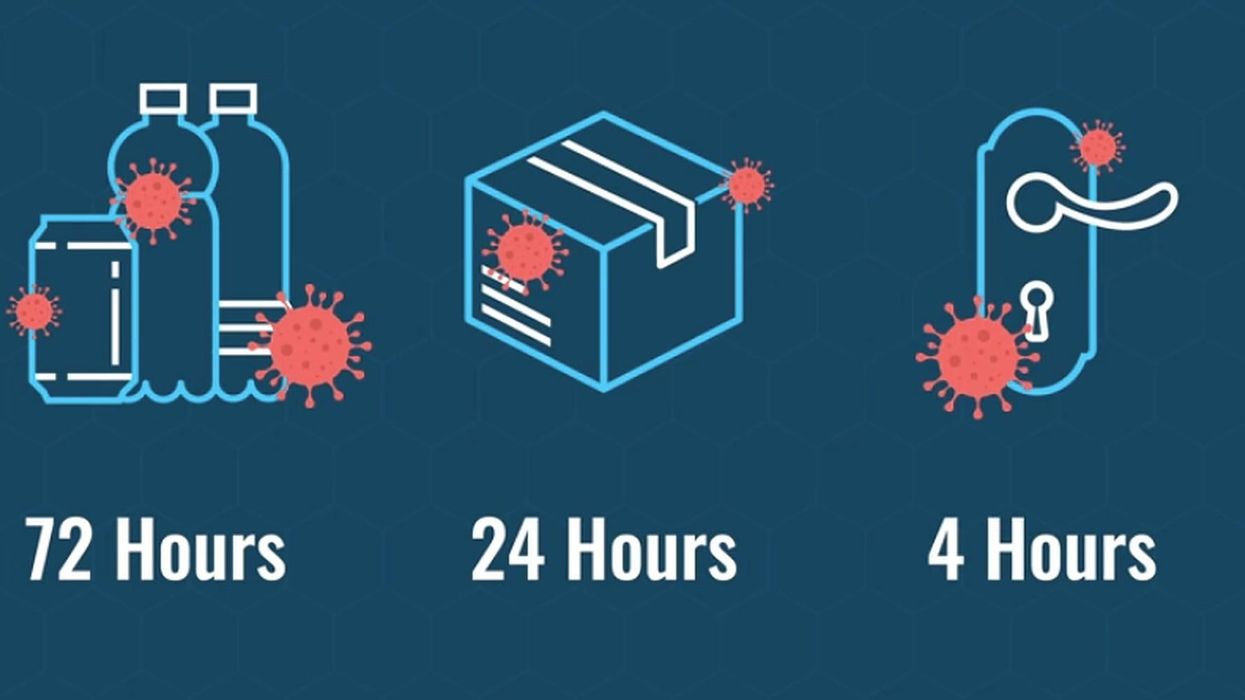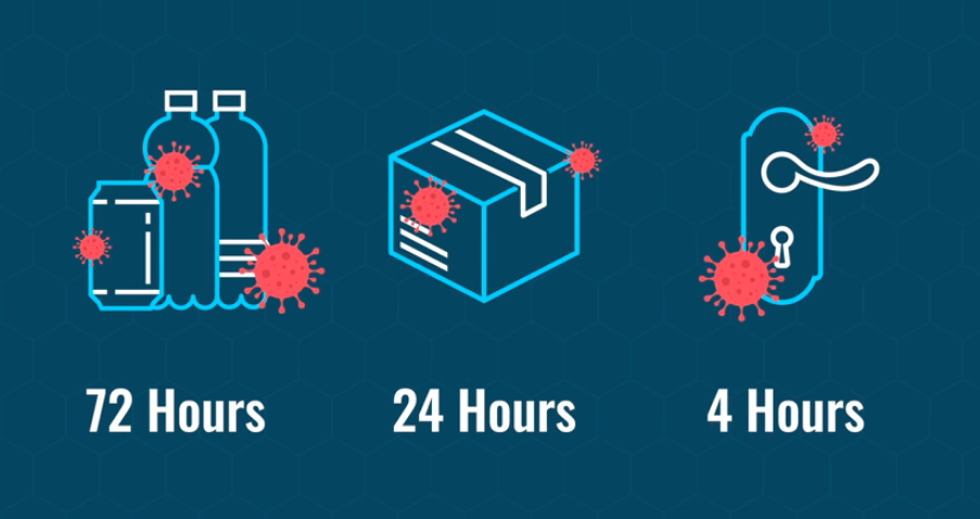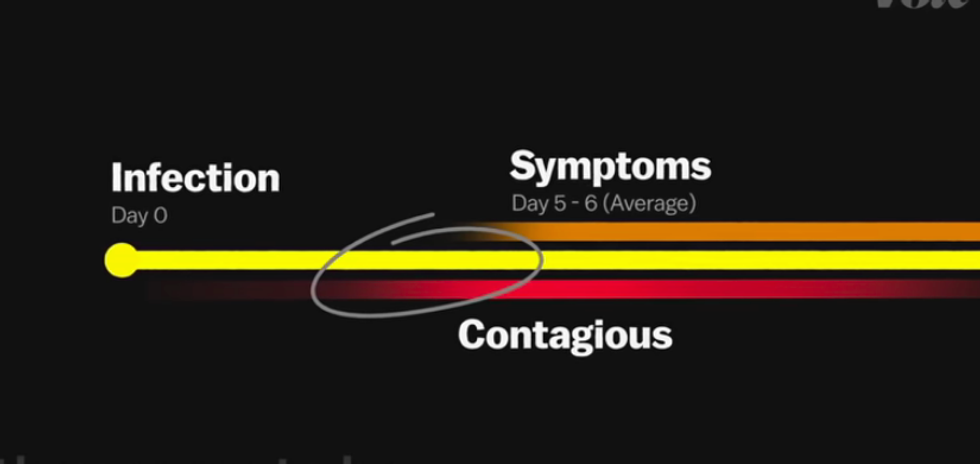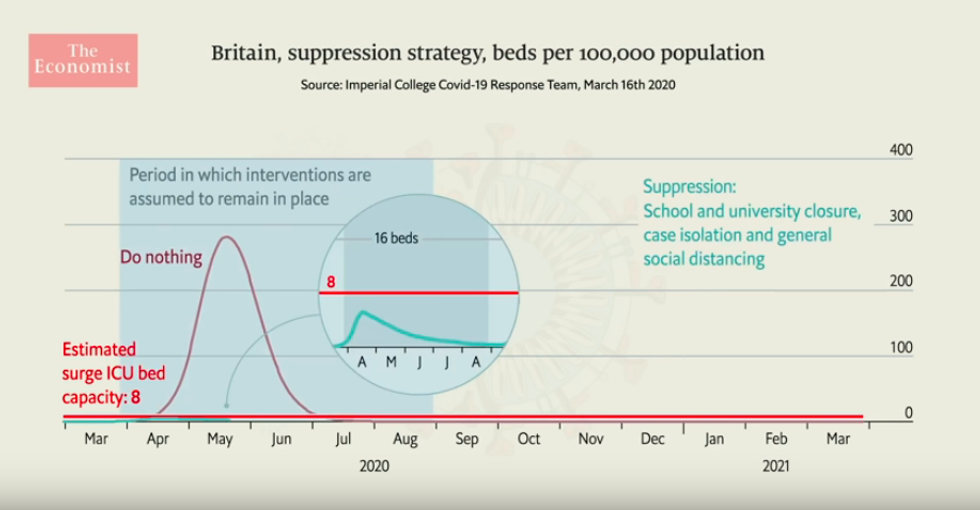Louis Staples
Mar 25, 2020
Why is coronavirus spreading so fast? How long does it survive on surfaces, food, or packaging? And does it hang in the air?
These are just some of the questions answered by Stephen Fry, who has come to us in our hour of need with a fact-checking video that answers many of our most-asked questions about coronavirus. (And busts a lot of the myths, too).
Fry reveals that coronavirus can survive on plastic and stainless steel for three days. On cardboard, it sticks around for around a day and on copper it lasts for 4 hours.
But that doesn’t mean antibacterial wipes or soap need to be used on fruit, for example. Dr Samir Gupta, of the University of Toronto, says:
If you are buying produce you don’t know who else has touched it, so the safest thing to do is to bring it home and was it with soapy water.
Tests have also found that the virus can linger in the air, sparking worries about shared buildings and air conditioning.
But experts have pointed out that if the virus was easily transmitted this way, then the rate of infection would be much, much higher. For example, Fry explains that the most infectious airborne virus is measles. A person with measles can infect 90 per cent of the people around them. But the rate of infection for coronavirus is just 10 per cent for people living in the same home.
Fry explains that one of the reasons coronavirus is spreading quickly is because people don’t always know they have it.
The number of UK deaths is, worryingly, rising more quickly than in Italy and China at similar stages. This could put unsustainable pressure on the NHS.
Italian nurse Cristina Colombo says:
What happened in Italy should serve as an example to other countries not to commit the same mistakes.
Fry finishes on an optimistic note, saying:
If we all keep our distance, it will mean that doctors can treat all the most critically ill patients, saving lives.
Watch the full video:
Top 100
The Conversation (0)

















